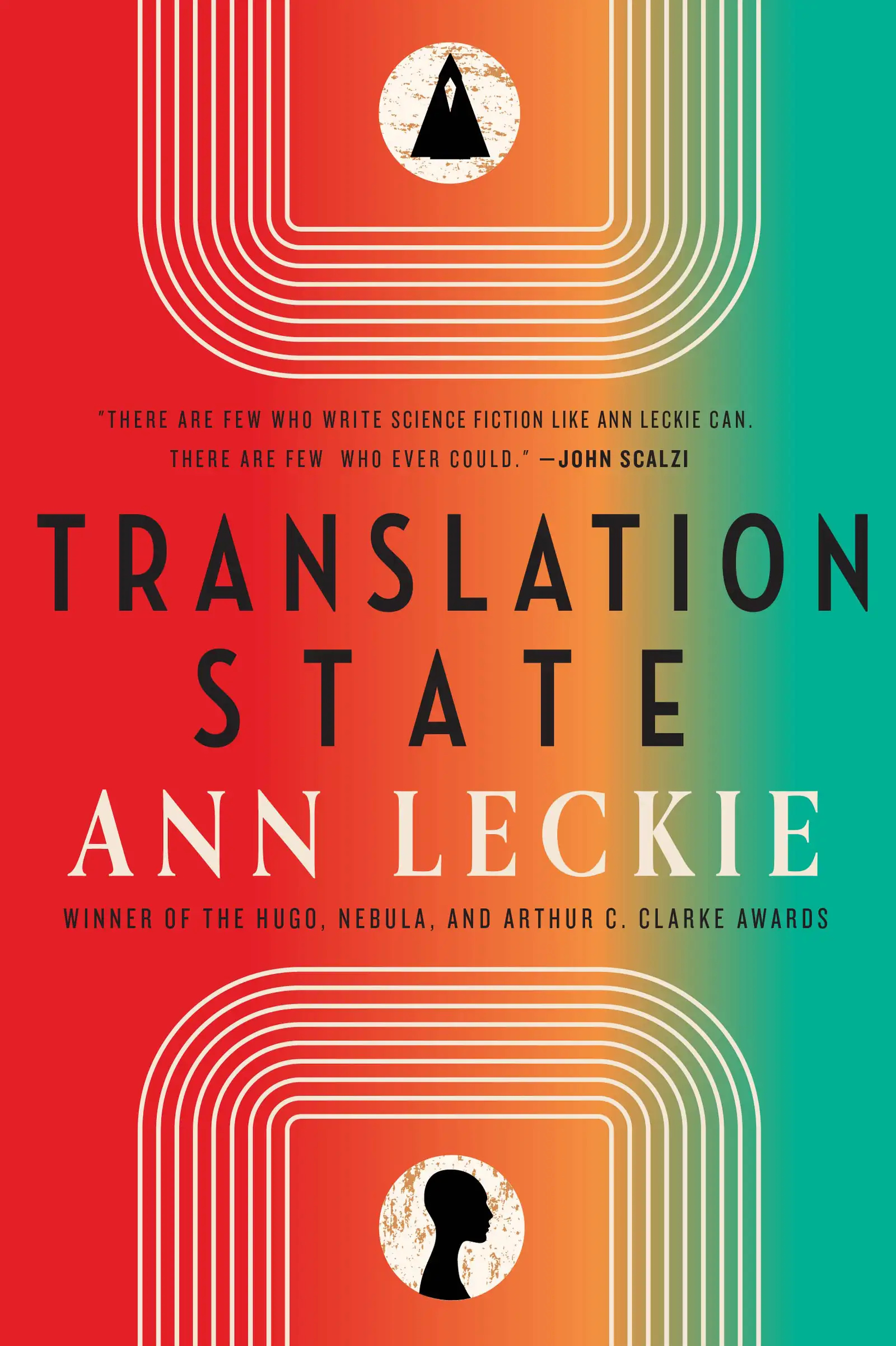- The Good: A protagonist with a huge body count, but not in the way you imagine
- The Bad: Some repetitive teen angst; third act that feels very different from the rest of the novel
- The Literary: A cozy scifi about identity that’s smart
At the end of the Ancillary Justice series, AI declared themselves a sentient species, spurring renegotiations of relationships between all sentient species in the Imperial Radch universe.
Qven is in training to be a Presgr translator, an honored position, and must learn human ways to serve as intermediary between Presgr and human worlds, including an extremely important Conclave to discuss the long-standing treaty between the two species and others. The Pregr don’t view individuality in the same way that humans do, and as adults multiple bodies share a single mind. But Qven’s interest in individuality jeopardizes her future.
Two other protagonists share alternating POV chapters. Enae is investigating the disappearance of a missing person, an impossible task since they’ve been missing for over 200 years. Reet, an adopted mechanic, is increasingly desperate to learn about his parentage as his body starts to experience strange and new things.
Leckie is a master of exploring the alien. Here, the Presgr are at the center of things, and it’s fascinating to explore the habits of a race that eats its own as children and transubstantiates as adults. We see individuality through the lens of a race who views it with disgust, and gender identity that expands well past the zeitgeist of today’s literature.
Fans of Leckie know her to write broad socially and politically impactful stories, but Translation State manages to be quite intimate too. It’s not just that Enae is finding herself late in life, nearly sixty with no career, no friends, no lovers, no marital partners, no children, and despite not being female is referred to as the “maiden aunt”. It’s not just the familiar trashy pulp adventure series “Pirate Exiles of the Death Moons” that Reet loves. These characters are searching for deep meaning and identity in their lives, and are willing to fight against the establishment for it.
Recommended for fans of thoughtful scifi that explores what it means to be human. Translation State gets my vote for this year’s Hugo Award.
